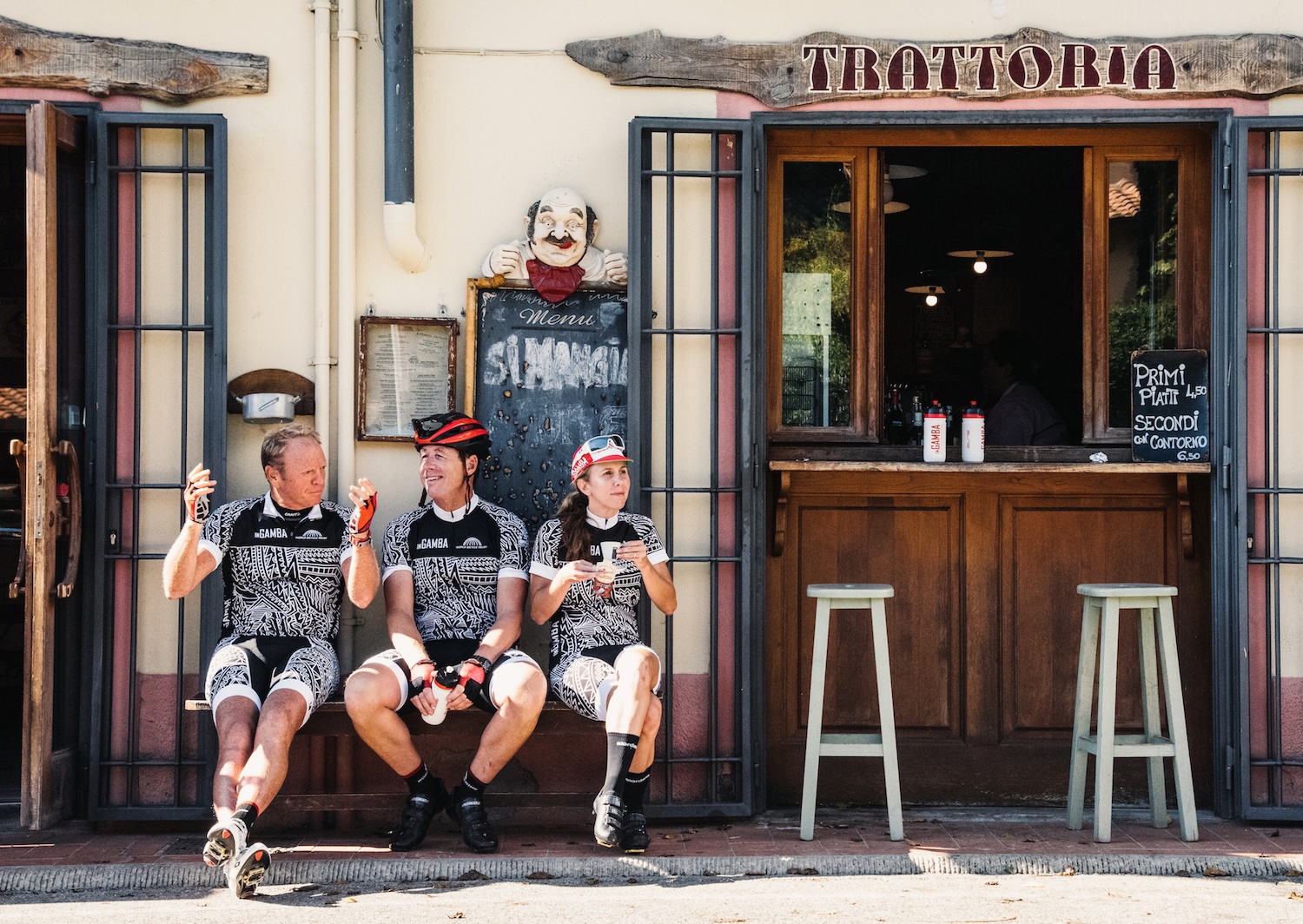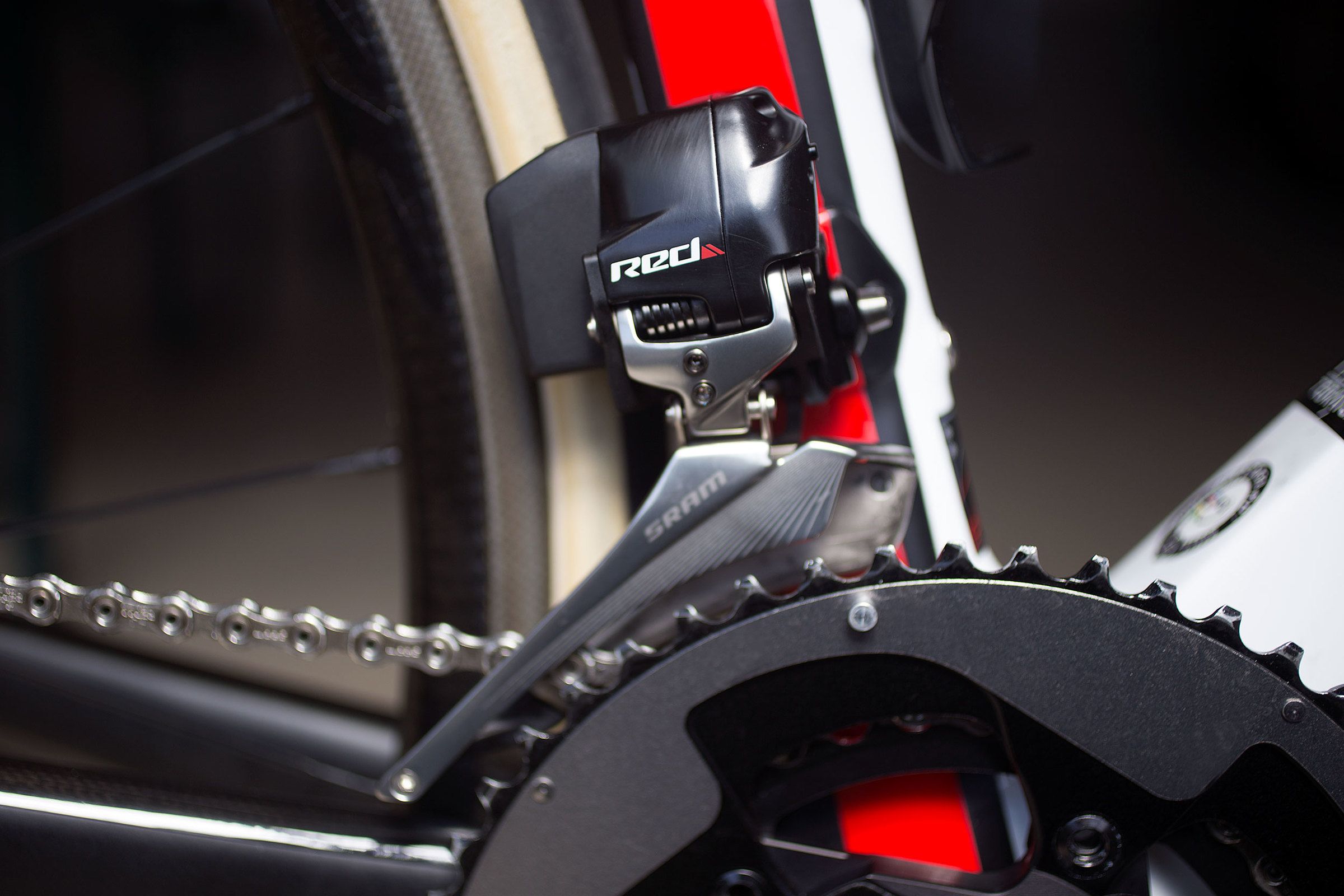We’ve all had those moments, mid-ride, when we annoyed at our bike or our kit not working quite right and think: “there has to be a better way.” Most of us never get past the complaining phase of that thought process, but Stan Day isn’t like most people. Frustrated at having to reach for downtube shifters, he did something about it and with a group of friends and family, he set about revolutionizing the bicycle industry. The Grip Shift was born in 1987 and 29 years later, SRAM is still at the cutting edge of cycling technology.
Innovation has always been a key part of the company’s make-up. It’s what set them apart and allowed them to compete with the big boys and it’s what has made them the people to watch when it comes to big, bold ideas. Almost three decades after changing the way we shift gears forever, the Chicago-based firm are still pushing the boundaries with their latest and greatest offering – the unique, wireless eTap groupset that adorns each and every one of inGamba’s fleet of Pinarello F8s.
Personality has been essential too. Stan is still the head of the company he helped create in the late 80s, and while it’s grown from a workshop operation into one of the industry’s most important players, this is one brand that hasn’t forgotten where it came from.
In a market dominated by a giant Japanese conglomerate and a storied Italian marque that trades on prestige, SRAM have carved out a place for themselves, against the odds, by believing in being different and by offering light, dependable, original products that perform perfectly and win races.
We caught up with him to find out more about how it all started – and about what he thinks has been the secret to SRAM’s continued success.

InGamba: What was life like for you before SRAM?
Stan Day: I was working for Molex [a manufacturer of electronic, electrical and fiber optic systems] as the marketing manager for the Personal Computer and Telecom industries. I remember calling on Compaq when their breakthrough was a “portable” computer that barely fit in the overhead luggage compartment on an airplane – and calling on Apple when they were in a single location!
IG: What motivates you?
SD: I grew up in a business family and have always had an intense competitive streak. While not being a great athlete, I have found the challenges of building a great company to be a terrific competitive outlet.
IG: What’s the biggest difficulty in competing with an established brand like Campagnolo or a huge corporation like Shimano?
SD: The biggest difficulty is that Shimano is like IBM in the 80s and 90s. They get the specification by default. We only get specified when we’re better. It forces us to work really hard and differentiate ourselves. Campagnolo is a specialty brand mostly focused on kit build and accessory business. Their president once told me they thought of themselves as the Rolex watch of bike components.
IG: What do you think has been the biggest reason behind SRAM’s success?
SD: It’s definitely our people and our culture. We’ve created an environment that’s passionate about bikes and innovation. We believe in the power of bicycles and expanding the potential of cycling.
IG: What has been your proudest achievement?
SD: That we have built a healthy energetic company that is a meaningful part of the bicycle industry.
IG: Is it true that your desk is out with the rest of the company’s employees?
SD: Absolutely. We work hard to foster open communication. Part of that is no walls and no secretaries. There are very few private offices in the company, and I think being open creates better teamwork and visibility.
IG: It must have been tempting to relocate once you became a major player in the bike industry. Why stay in Chicago?
SD: Because the Chicago Cubs are going to win the World Series this year! But also it was where most of us were from when we started the company. In 1987 there were seven million bikes made within 300 miles of Chicago so that was a decent reason to operate here. We have a great airport to go anywhere in the world. The climate is acceptable about six months of the year. Cycling downtown is much faster than driving a car. And we have about 150 people that have roots in Chicago and prefer to be here.
IG: Do you have more goals for the future of SRAM?
SD: I’d like to smooth out the growth trajectory of the organization. It is a bit choppy at the moment. Part of that is sustaining our effort of improving Quality while maintaining our pace of innovation. Part of that is capitalizing on our innovation to balance our competitors brand power. I’d also like to spend more hours on my bikes!
–
Stan will be spending plenty of time on one of our bikes this October, when he joins us in Portugal for an incredible randonée that will explore some of Europe’s most stunning landscapes and indulge in some of the continent’s best food and drink – all in aid of World Bicycle Relief and the incredible work they do in the developing world. Want to find out more? You can read all about this unique trip here.

















